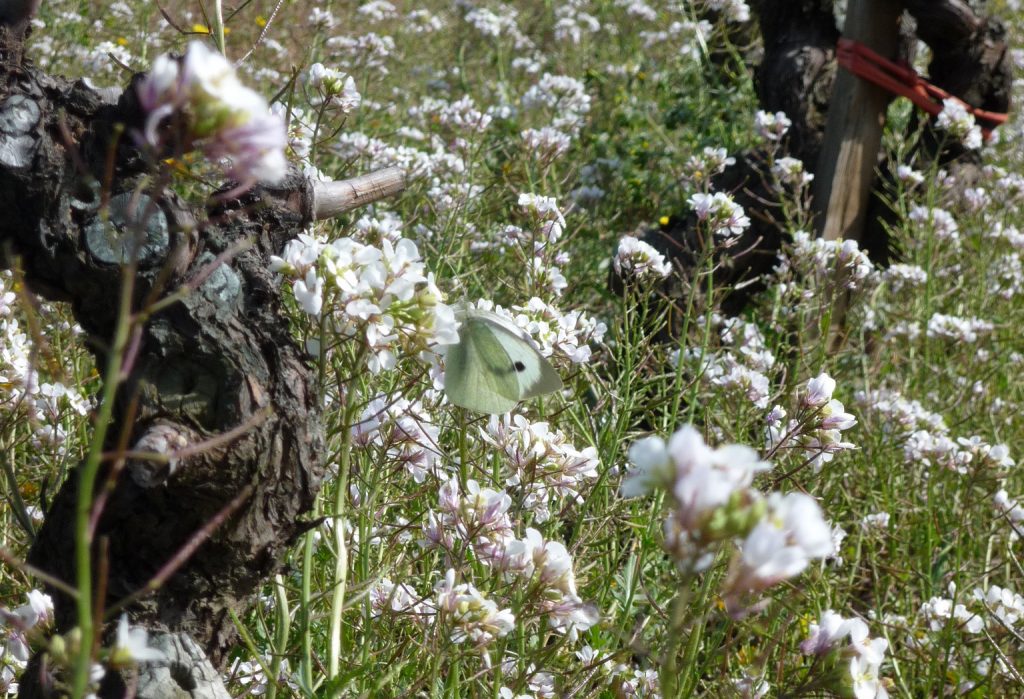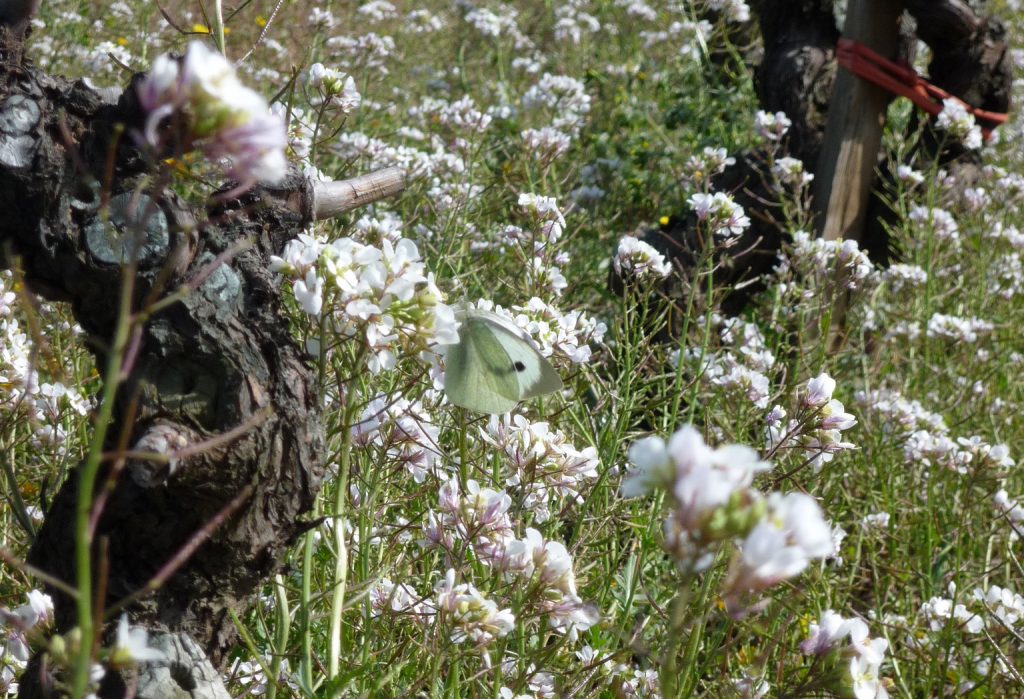
What is Natural Wine?
Learn the basics about natural wine, including what makes this style of winemaking distinct from conventional mass-market wines.
4 min read
At RAW WINE, we celebrate a vibrant community of low-intervention, organic, biodynamic, natural wines and their grower-makers. Before diving in, it’s helpful to have an understanding of the fundamental concepts to enhance your exploration of them.
In the article below, you’ll find answers to the most basic questions about natural wine including what it is, why you should drink it and how to approach it from RAW WINE founder Isabelle Legeron MW.
For further reading, pick up a copy of 'Natural Wine: An introduction to organic and biodynamic wines made naturally' by Isabelle Legeron.

What is natural wine?
While there is no universally accepted definition of natural wine, it is generally agreed to be wine that is farmed organically (biodynamically, using permaculture or the like) and made (or rather transformed) without adding or removing anything in the cellar. No additives or processing aids are used, and ‘intervention’ in the naturally occurring fermentation process is kept to a minimum. As such neither fining nor (tight) filtration are used. The result is a living wine – wholesome and full of naturally occurring microbiology.
Here is an excerpt from Isabelle's book on this topic:
"“The most excellent wine is one which has given pleasure by its own natural qualities, nothing must be mixed with it which might obscure its natural taste” (Columella)
Given that the microbiological life of the vineyard is what enables both successful fermentations in the cellar and the creation of wine that is able to survive without a technological crutch, sustaining a healthy habitat in the vineyard for these microbes is fundamental for the natural wine grower. This microbiological life follows the grapes into the cellar, transforms the juice and even makes its way into the final wine in the bottle. Natural wine is therefore, literally, living wine from living soil. In its truest form, it is wine that protects the microcosm of life in the bottle in its entirety, keeping it intact so that it remains stable and balanced."
Are organic and biodynamic wines also natural wines? Or are they different?
While all natural wines are organic wines, the reverse is not necessarily true. The terms 'organic' and 'biodynamic' relate primarily to how the grapes are grown rather than how the wines are made in the cellar. So it is possible, for example, to grow grapes biodynamically but then use additives in the cellar - we would not consider these to be natural wines. Happily, the are many organic and biodynamic wines that are also natural - and delicious to drink.
Why should I care about natural wine?
If you really care about what you eat, the environment and pollution, then you need to be thinking about natural wine because it reflects these values. Compared to conventional methods, the farming practices are better for the environment. Because there are no residual products, pesticides, insecticides, you’re not polluting your body either.
When you make wine with indigenous yeast and very little additions, then you're drinking something that is a much truer representation of where it’s from. So if you're looking for authenticity of place and product, then drinking natural wine, or low-intervention wines, is definitely the way forward. Find out more in Our Story and Isabelle's article on Transparency.
Where can I buy natural wines?
If you are based in the UK, you can buy natural wines from our online wine shop with the the largest selection of low-intervention organic, biodynamic and natural wines anywhere in the UK!
How should I store natural wines?
You can store natural wines in the same way as conventional wines - i.e. away from sunlight and extremes of temperature. I have matured sulphite-free wines in my house's cellar for a number of years and the wines are in perfect condition.
Natural wines are perhaps more sensitive than their conventional counterparts, because they are reactive to their environment. They are essentially a living product.
Once open, natural wines actually last a lot longer than conventional examples. Just put the cork back in and most will hold their own in the fridge for days – sometimes weeks. I kept one example open for four months – an experiment I talk about in my book Natural Wine.
The ageability of a natural wine depends on how it is made and whether or not it’s for immediate consumption as some ‘vins de soif’ are bottled early and meant for drinking within the year.
In my personal experience, they can age for years and even decades in some cases. This usually seems to be down to the skill of the producer, starting with really healthy grapes and allowing the wines time to mature and stabilise properly before bottling.
Do natural wines contain sulfites?
A fraction of our winemakers do add sulfites but at levels way below EU limits. Find out more in our Charter of Quality and Our Vetting Process.
Here is an excerpt from Isabelle's book on this topic:
"Minor interventions, therefore, (such as the restrained use of SO2 at bottling for instance) can provide both a sense of security for the grower and a readjustment of the microbial life, if aberrations threatening quality begin to occur, while also minimally impacting the wine. What’s more, while producing wines that are ‘nothing added-nothing removed’ takes enormous skill, awareness and sensitivity, it isn’t always, every natural grower’s intention ...
Natural wine is a continuum, like ripples on a pond. At the epicentre of these ripples, are growers who produce wines absolutely naturally – nothing added and nothing removed. As you move away from this centre, the additions and manipulations begin, making the wine less and less natural, the further out you go. Eventually, the ripples disappear entirely, blending into the waters of the rest of the pond. At this point the term ‘natural wine’ no longer applies. You have moved into the realm of the conventional."
How can I find out more about natural wines?
Explore our website and treat yourself to a copy of Isabelle's seminal book 'Natural Wine: An introduction to organic and biodynamic wines made naturally'. This was described by Decanter as “an invaluable introduction”, by the Times Literary Supplement as “a joyous celebration of all that Legeron believes is good and pure in the world of wine” and by the World of Fine Wine as “an infectious, accessible guide [that] may prove to be the most important wine book yet written”. It is available in English, Cantonese, French, German, Italian, Japanese, Korean, Russian and Ukrainian.
Keep exploring...
- Browse natural wines available for UK delivery via the RAW WINE online shop


